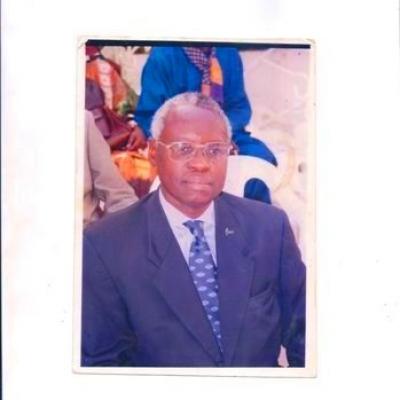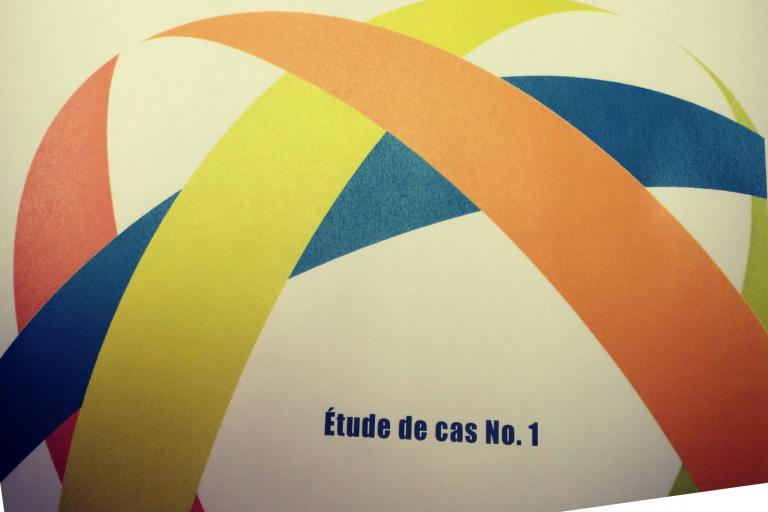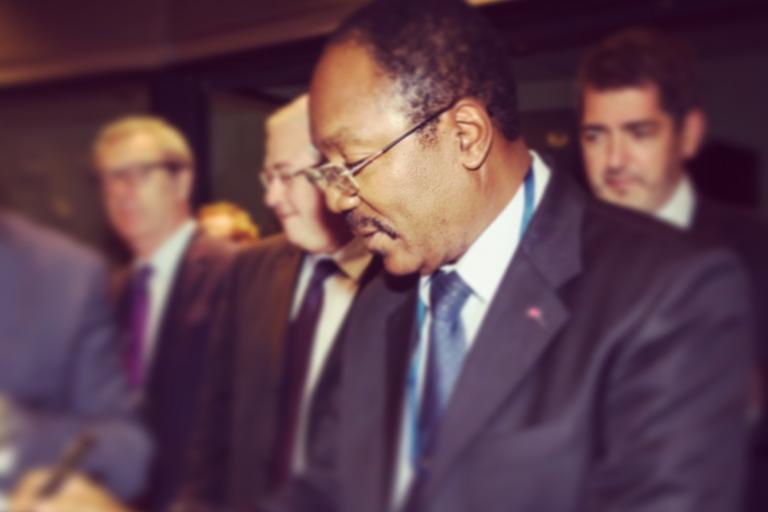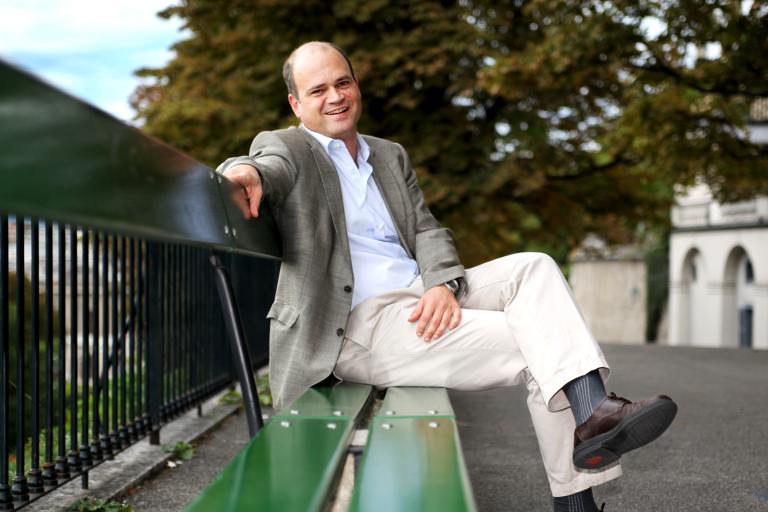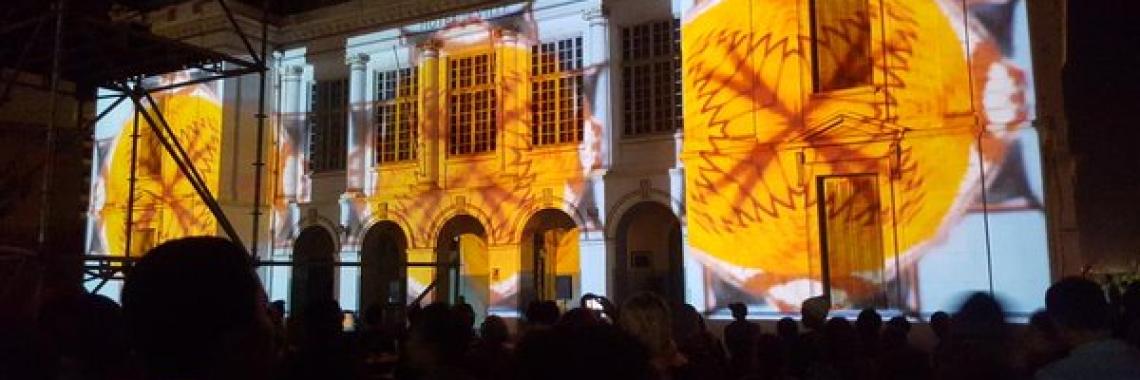
Blog: A Shared Desire for a Shared Life
By Abdoulaye Elimane Kane, former minister, Cultural advisor to the mayor of Dakar.
In Senegal, the peaceful coexistence of several religions, the practice of “friendly banter” and various mechanisms of solidarity both in daily life and on special occasions can all be seen as manifestations of a “shared desire for a shared life”, both ancient and modern. This text examines the first of these cases, which we often perceive as “interfaith dialogue.”
Senegal is a country where revealed religions and traditional faiths have coexisted for a long time (Islam, Catholicism, Protestantism and various types of animism). Islam is the majority religion. This religion and Christianity found an African breeding ground of traditional religions characterized by diversity; some practice ancestor worship, while others have one transcendent God who works through intermediaries, like the Diolas in the south (the god Emitay) and the Serer people in the centre and on the Atlantic coast (the god Roog Sene).
It is clear from history that these religions never had the intention or hegemonic desire to impose their beliefs or worship on neighbouring peoples. Although there have been wars in their history and conflicts around the conquest of power in their social life, religious wars have never been reported in this part of pre-colonial Africa. This de facto religious pluralism, notwithstanding the existence of conservative or outmoded customs, is to be considered as a humanist message on which other forms of peaceful coexistence can be built.
When we speak of interfaith dialogues, a very appropriate theme for the situation of our world these days, we often think of conflicts related to misunderstandings or issues between people or civilizations that are identified with a religion and which struggle to find the meaning of pluralism, diversity and construction of common national or international spaces for shared living and mutual recognition.
Daily life for Senegalese people, particularly in cities and the capital city of Dakar, offers concurrent examples of the desire to live together with a plurality of religions and cultural expressions. Dakar is seen as a new cosmopolitan space. Urban concepts based on the principles of public space could have had a dissolving effect on ethnic or cultural identities. On the contrary, diversity, pluralism and a sense of shared belonging to something else coexist, albeit sometimes in a precarious balance. The role of public powers and local governances is to oversee and assist whatever can help raise awareness of the importance and necessity of this balance. One of the royal paths consists of promoting the expression of diversity by creating a space of equality and reciprocity.
Senegal’s Muslims practice their religion in daily life by anchoring it in brotherhoods with their own identity, symbolized by their respective founders who serve as a unifying Ancestor for the community of followers. The Tijani, Mouride, Layene, Niassene, Khadre-Ndiassan, and Madina-Gounass are a few of these brotherhoods. In some ways, the brotherhoods are competitive, but very rarely are they in opposition to an extent that would put social cohesiveness in danger.
In terms of competitiveness and peaceful coexistence, a unique form of this worthy pluralism and diversity can be found, in Dakar in particular, in the abundant religious iconography that accompanies the deployment of popular economy that is still known as informal economy, in cheer and good will, and sometimes even humorous banter and humour. Amulets, pendants, giant photographs sold by strolling merchants along the city’s major thoroughfares; emblems and signs hang from businesses and storefronts; ads in places as diverse as newspapers, office walls next to the official portrait of the president of the republic, the sides of urban and interurban transportation vehicles, and increasingly, on television.
These images represent, in their diversity and the freest competitiveness, the faces of the main founders of the brotherhoods and their descendants. Each vendor sells his merchandise and counts on the blessing of his religious guide, which he is promoting at the same time, combining business sense and religious fervour. And as these promoters which modern life has made ingenious like to say: “Every man for himself and God for everyone.” Beyond this aspect of mobile and commercial competitiveness, they don’t lose sight of their common adherence to the same religion and their vocation as social regulators of their respective guides.
People often cite as an example of a tradition of tolerance and the shared desire for a shared life the fact that members of the same brotherhood belong to different religions without any harm to the family ties that bind them. Here are some typical examples: One of the sisters of Msgr. Hyacinthe Thiandoum, the first Senegalese archbishop of Dakar, was Muslim, and similar situations are legion. As well, in a primarily Muslim country, it is worth noting that President Senghor, a Catholic, was the head of state for some 20 years, supported politically by Muslim religious leaders and their disciples, some of whom were noteworthy citizens of Dakar.
When the large Touba mosque, capital of the Mouride brotherhood, was inaugurated on June 7, 1963, Catholic President Senghor, in his speech, emphasized two ideas that demonstrate Senegalese people’s attachment to tolerance and living together: he praised the Mourides (along with other brotherhoods) for assimilating Islam by adapting it to African cultural expressions. As well, he encouraged his fellow citizens to keep trying to understand the importance that the Senegalese constitution places on secularism – that is, the equal dignity of all religions and the free practice of them by their followers, who mutually respect one another.
If in other parts of the world, interfaith dialogue is still in the exploratory stages, in Senegal a great deal has been achieved, which, in my opinion, is because the Guides and the followers of these different religions managed to avoid the obstacle most likely to pose a threat to such things – the issue of their respective dogmas, a difficult if not insurmountable issue. Their wisdom lay in noticing what unites revealed religions and emphasizing their common and original social doctrine: fighting injustice and protecting and helping the poor and weak, such as women, children and orphans. To achieve this, they relied on good works (practices that make sharing and the common good a part of everyday life). The city of Dakar has consolidated most of these social institutions, which are so integrated into residents’ lives that few people pay attention to the religious origin of their founders, although they are not unaware of it.
In some areas, it is increasingly common that people of different faiths from the same family are buried in the same cemetery. During the Muslim sheep festival, donating “their part” of the sacrifice to Catholic neighbours and friends is a long-established practice in urban areas, especially Dakar. As well, for major events such as the burial of Cardinal Thiandoum or the enthronement of a new bishop, Muslim dignitaries known for their years of business with the Catholic hierarchy of Dakar attend the blessing ceremonies for these events at the Dakar Cathedral. Thierno Saidou Nourou Tall, grandson of Elhadji Oumar Tall, a great Muslim colonial resistance fighter, was known for this practice that his heirs, nephews and living disciples in Dakar have perpetuated, not without some gritting of teeth from other “faithful” devotees who have another way of thinking.
Reciprocally, at the end of the 40 days of Lent, Catholics share their Ngalakh (a succulent dish of peanut paste, sour milk and millet couscous) with their neighbours and friends, sending large dishes of this cherished food to their neighbours and friends. Bishops in Senegal’s Catholic Church and their counterparts in regional capitals have always attended major events of both the brotherhoods and those of the Muslim faith in religious capitals, especially Dakar.
In addition, many Senegalese Muslims completed their studies, in part or in full, in schools, colleges and other educational and training institutions created and directed by Catholic establishments. In the field of health, there are dynamic charitable actions for all social classes, without distinction for religion or origin, which thankfully complement public policies in these sub-sectors, concurrently with institutions working in the same field founded by religious Muslim sponsors or guides.
This Living Together based on seeking common good has at its core the notion of identity. Senegalese people are increasingly aware that identity in general, and theirs in particular due to their experience and history, is hybrid, in that it is composed of several layers and influences. They are also increasingly aware that urban life, and especially life in the expanding national capital and urban hub of Dakar, is a space where new and diverse cultures emerge. For this reason, surviving and contributing to Living Together means that different cultural sensibilities must prove their creativity, a sign of vitality and aptitude, to ensure their own roots in an urban world that is more open-minded by design.
Consequently, the search for harmony means that each person must judiciously integrate these layers within him or herself as an individual linked to a group, a community. This is what explains the fact, for example, that some residents of Dakar, both Muslims and Catholics, from parts of the country where traditional religions have long had a stronghold, take part in local commemorative traditions and encourage their children to be open to practices that introduce them to certain values, in order to express the need for roots and open-mindedness, without which humankind risks divided within itself.
People are not just Musllim, Catholic or Animist; they are thousands of other things that they share with people who are not necessarily of the same faith. Knowing this and giving it the importance that it deserves means moving beyond ourselves and taking a step towards others; it means having a sense of shared well-being. In its programs and local actions, the city of Dakar has made shared well-being the cornerstone of its cultural policies, as evidenced, for example, in the slogan for its application to the Creative Cities Network: “Connecting Diverse Worlds.”
